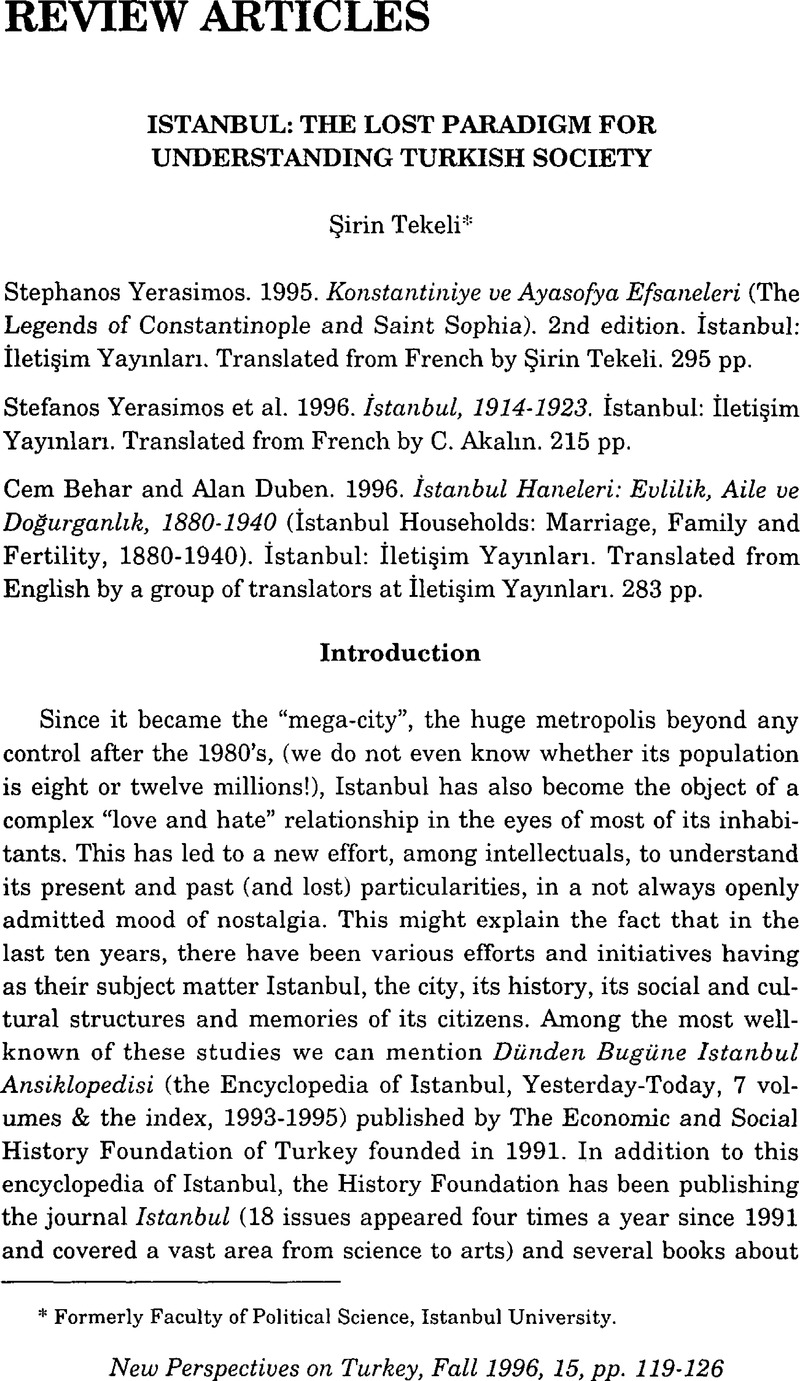No CrossRef data available.
Published online by Cambridge University Press: 21 July 2015

1 Mantran, Robert, Histoire d’Istanbul. Fayard, Librane Arthème, 1996Google Scholar, especially Ch. 12: “De l’Ottomantisme au cosmopolitisme (XIXe. siècle-début du XXe.siècle), pp. 285–319.Google Scholar
2 Yet, remembering the mere title of a recent, short article by sociologist Göle, Nilüfer, one wonders if, in spite of many changes, Istanbul does not keep the spirit of “cosmopolitanism” even in the 1990’s: “Rebellious, Contemporary and Cosmopolitan” (Yeni Yüzyıl, 5 July 1996).Google Scholar The article was an interesting interpretation of the meaning of the concert that Kudsi Erguner and his Turkish Music Ensemble presented at Hagia Eirene Museum (an old Byzantine church) at which the Ensemble played the Ferahfeza Mevlevi Ayini by Hammamizade Ismail Dede Efendi, a nineteenth century Ottoman composer.